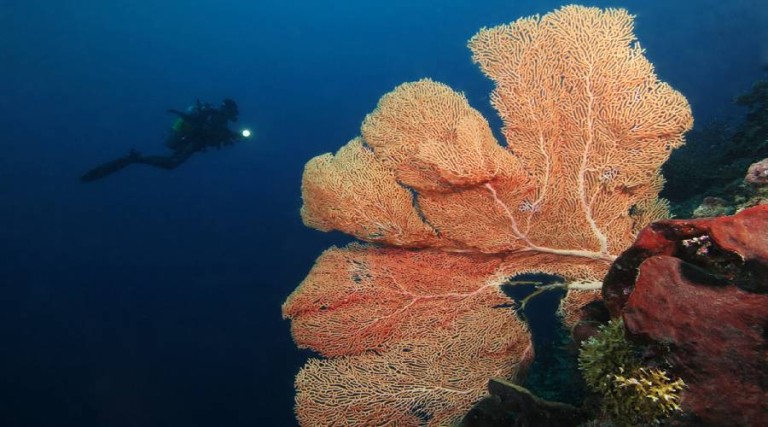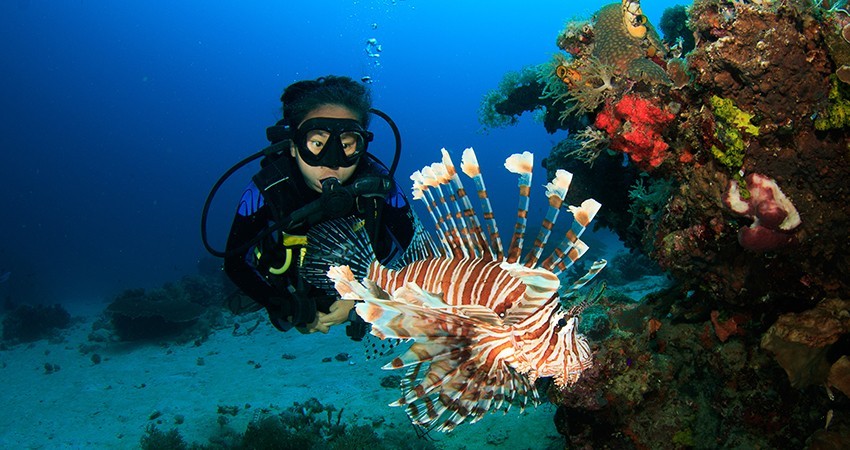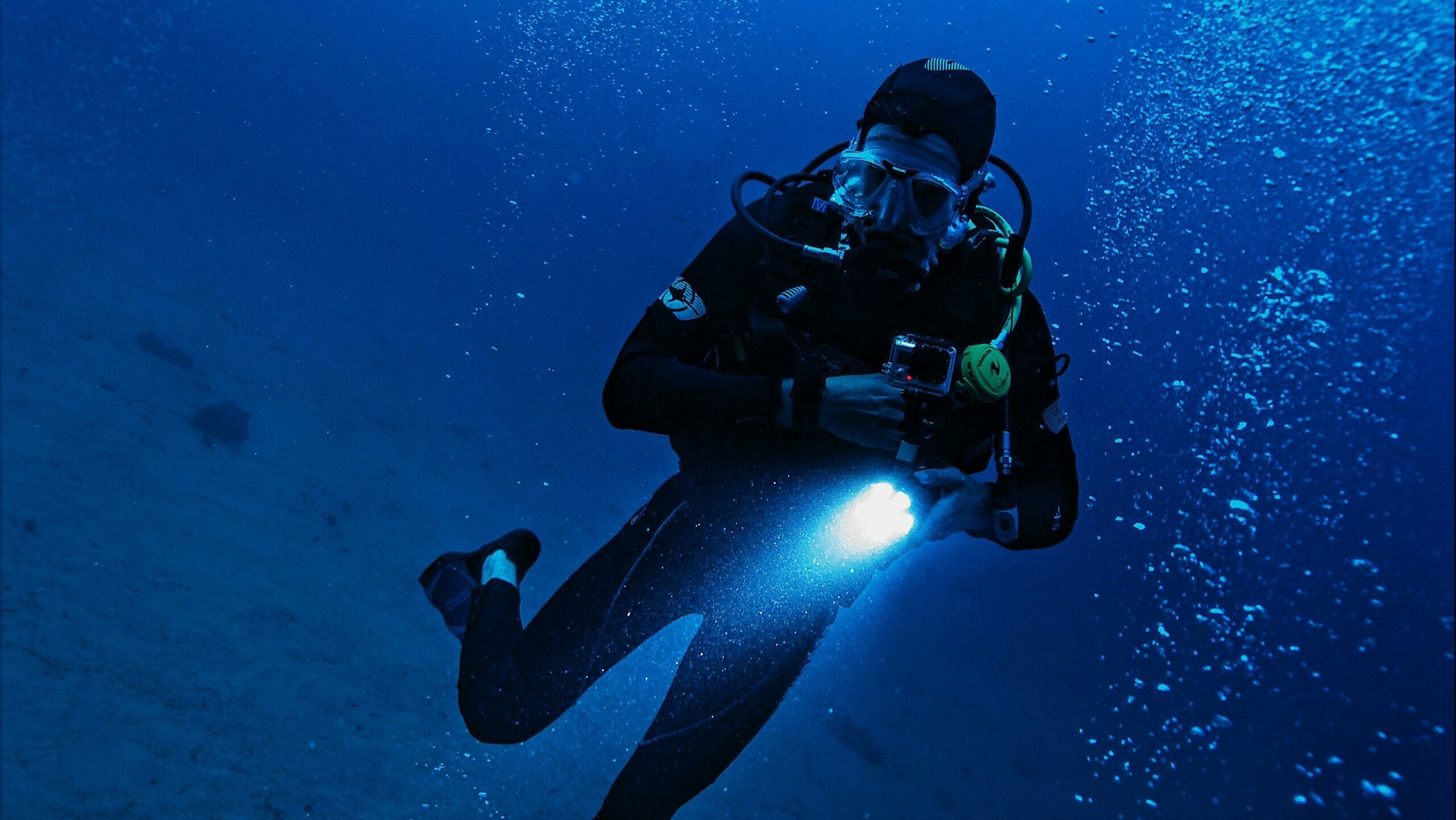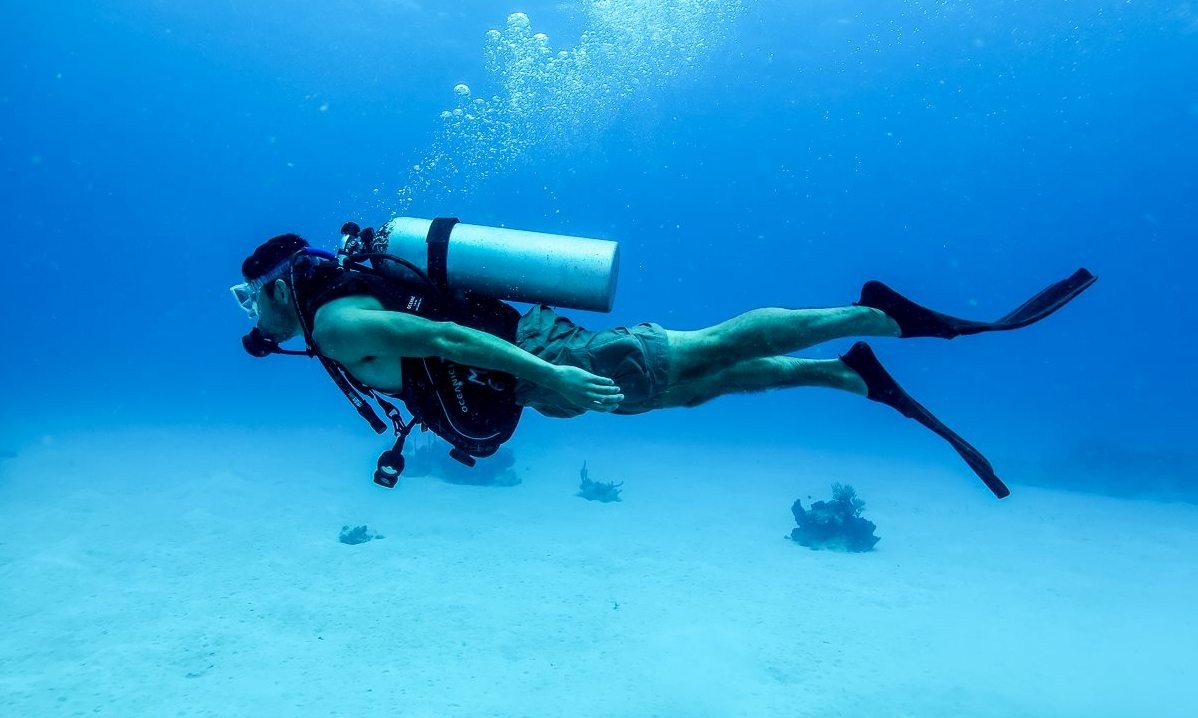Diving Sites in Port Blair




-
Aug 01, 2023
Imagine yourself gliding through the silky water under the starry sky, the underwater world illuminated by your dive light, its eerie beauty unfolding in front of your eyes. This is night diving, a thrilling experience that turns the familiar daytime underwater landscape into a new realm of adventure.
Night diving is an exciting adventure that broadens your perspective, deepens your dive skills, and offers an unforgettable underwater experience. It shows you a side of the ocean that few get to see - a world that's mysterious, calm, and incredibly beautiful. The Andaman Islands, with their rich marine life and clear waters, provide a perfect playground for this nocturnal exploration.
Let’s delve into the top tips for night diving and transform your sunset dive into an unforgettable memory.
Get Proper Training: Night diving is not the same as day diving. Visibility is reduced, navigation can be trickier, and even the marine life behaves differently. Make sure to take a night diving speciality course such as the PADI Night Diver course before you embark on a night dive. This training will teach you essential skills like using a dive light, communicating in the dark, and navigating with a compass at night.
Plan Your Dive: Always plan your dive and dive your plan. This is even more crucial during a night dive. Before you dive, discuss with your dive buddy or group about your dive plan. This should include the entry and exit points, the route you'll follow, maximum depth and dive time, and what to do in case of an emergency.
Use Appropriate Equipment: A good dive light is essential for night diving. In fact, it is one of the top tips for night diving. You'll need a primary light and a backup in case your main light fails. Many divers also use a marker light attached to their tank so they can be easily located by their buddy. Also, ensure your other gear like a mask, fins, BCD, and regulator are in good condition before the dive.
Buddy System: The buddy system is important in any dive but is absolutely crucial in a night dive. Make sure to stay close to your dive buddy. Regularly check on each other and communicate often using light signals or hand signals within the beam of your dive light.
Be Aware of Your Surroundings: Visibility can be limited in night diving. Therefore, being aware of your surroundings is key to avoiding potential hazards. Keep a safe distance from the sea bottom, watch out for marine life, and always know where your buddy and other divers are.
Navigate Carefully: Navigation at night can be a challenge. Use natural references when you can and always have a compass handy. Some divers prefer to navigate along a reef or wall during a night dive to keep a reference point nearby.
Protect Marine Life: At night, you'll encounter different marine life, some of which may be resting or hunting. Respect marine life by not shining your light directly into their eyes, not touching them, and avoiding any disturbance to their natural behaviour.
Stay Calm and Enjoy: Another one of the top tips for night diving is to stay calm while diving. It's natural to feel a little anxious before a night dive, but once you're underwater, try to relax and enjoy the experience. Night diving opens up a whole new world to explore. Enjoy the peace, the new creatures, and the different perspective on places you might have dived before in daylight.
Post-Dive Safety Check: After your dive, do a thorough check of your gear, making sure to account for all equipment pieces. It's easy to miss something in the dark.
Remember, safety is the priority in any dive, and night diving is no exception. With careful preparation and by following these tips, you can enjoy the magical experience of night diving in a safe and responsible manner..jpg)
Which Courses Should you Take to Start our Night Diving Journey?
Are you a novice when it comes to diving? Don’t worry, you can still fulfil your night diving dreams if you pursue these PADI-certified courses to prepare yourself for the underwater terrain:
PADI Open Water Diver: The journey begins with the PADI Open Water Diver course. This certification is a prerequisite for most advanced PADI courses, including the Night Diver Speciality. In this course, you'll learn the fundamental skills required for scuba diving, including equipment usage, underwater communication, buoyancy control, and basic safety procedures.
PADI Advanced Open Water Diver: While not a strict prerequisite for the Night Diver course, the Advanced Open Water Diver course is often recommended before undertaking speciality training. It broadens your diving skills and knowledge, introducing five different Adventure Dives, including the Deep Dive and Underwater Navigation Dive, both of which are particularly useful for night diving.
PADI Night Diver Speciality: This is the key course for anyone interested in night diving. The Night Diver Speciality course equips you with the skills and knowledge necessary to plan and execute night dives safely. This includes learning how to navigate and communicate underwater in low light conditions, understanding how marine life behaviour changes at night, and becoming proficient in the use of specialised equipment such as dive lights and glow sticks..jpg)
Best Tips for Night Diving: Unique Night Diving Experiences in the Andamans
Let's take a look at some unique night diving experiences you can enjoy in the Andamans.
Bioluminescent Plankton Dive at Havelock Island: In the enchanting waters around Havelock Island, night divers can immerse themselves in an awe-inspiring, natural light show courtesy of bioluminescent plankton. These tiny organisms emit a soft, ghostly glow when disturbed, creating a surreal, twinkling effect in the water around them. Imagine a starry night but beneath the waves.
This phenomenon can usually be witnessed on moonless nights when the darkness accentuates the plankton's luminescence. Remember, this phenomenon is delicate and can be easily disturbed by strong lights or sudden movements. So, turn off your dive light, float gently, and allow your eyes to adjust to the darkness for the best experience.
Neptune's Reef at Neil Island: Night diving at Neptune's Reef, located near Neil Island, offers an extraordinary opportunity to observe the nocturnal marine life in their natural habitat. As you descend into the waters, you're likely to encounter curious octopuses, stealthy moray eels, and prowling lionfish, all going about their nightly routines.
A night dive here also gives you a chance to see the coral reefs in a different light - literally. The soft lighting reveals new colours and details in the coral, and the whole underwater landscape takes on a more mysterious and dramatic aspect.
The Wall at Barren Island: For a night diving adventure with a hint of the extreme, consider The Wall at Barren Island, home to South Asia's only active volcano. Here, the steep, vertical coral wall plummets dramatically into the deep, offering an adrenaline-pumping dive experience.
At night, this underwater cliff becomes a gathering place for a host of fascinating creatures. You might encounter lobsters, nudibranchs, and a range of crustaceans that are most active after sundown. The Wall's dramatic topography, combined with the thrill of night diving, makes this a memorable experience for divers..jpg)
How Much Does it Cost?
If you are already certified and just want to experience a night dive, the cost generally ranges from INR 3,500 to INR 7,000 per dive. This includes your guide, equipment, and the boat ride to the dive site. The certification courses include study materials, equipment rental, dives, and certification.
The Open Water Diver Course generally costs between INR 18,000 to INR 25,000 in the Andaman Islands. While the Advanced Open Water Diver Course generally costs between INR 20,000 to INR 30,000. The Night Diver Speciality course cost can range from INR 15,000 to INR 20,000.
Diving Sites in Port Blair
Diving Sites in Havelock Island
Diving Sites in Neil Island


.jpg)

